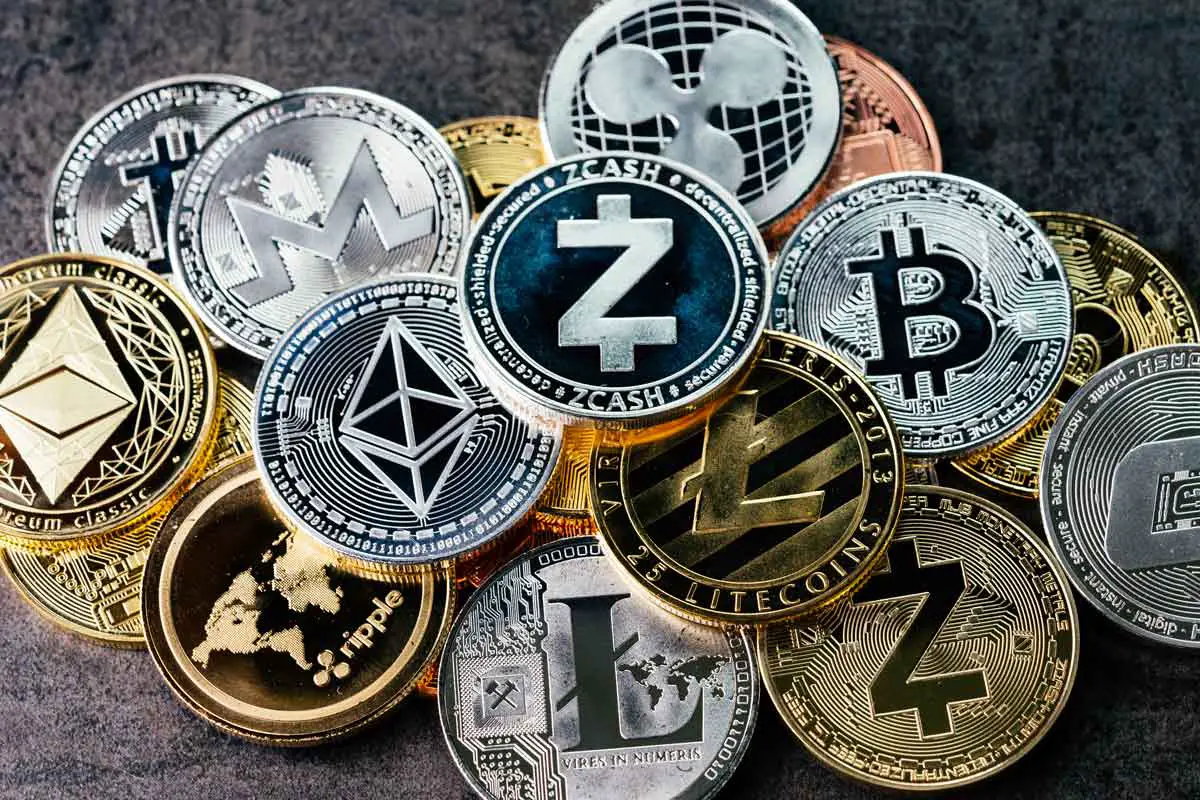Wallet Wars: Securing New Cryptocurrencies In The Digital Age

The rise of cryptocurrencies has ushered in a new era for financial transactions. However, with this burgeoning adoption of digital currencies comes increased vulnerability to theft and other security breaches. To protect their valuable assets, crypto enthusiasts rely on cryptocurrency wallets.

Cryptocurrency wallets store the digital keys that allow users to access and manage their funds. These wallets come in various forms and offer different levels of security. In the fiercely competitive “wallet wars,” each provider strives to outmaneuver its rivals by offering cutting-edge features and unwavering protection.

Hardware Wallets: These physical devices, resembling USB drives, provide the most secure storage option. They keep private keys offline, making them invulnerable to online hacking attempts. Examples include the Ledger and Trezor wallets.
Software Wallets: Installed on a computer or smartphone, software wallets offer ease of use and accessibility, but they remain vulnerable to potential malware attacks. Prominent examples include Metamask and Trust Wallet.
Paper Wallets: Featuring a simple yet effective approach, paper wallets involve printing out a pair of public and private keys on a physical piece of paper. While offering a high level of security, they are susceptible to loss or damage.
Exchange-Based Wallets: Tied to cryptocurrency exchanges, these wallets allow users to trade and store their digital assets conveniently. However, they pose a higher security risk due to the potential for exchange breaches. Binance and Coinbase are well-known examples.
Multi-Signature Wallets: Requiring multiple signatures for transaction approval, multi-signature wallets provide an enhanced level of security. They are ideal for managing funds within a team or safeguarding large amounts of cryptocurrency.
In the ongoing quest for ultimate crypto security, wallet providers continuously innovate. Advances such as biometric authentication, hardware encryption, and multi-factor authentication are becoming increasingly prevalent. The battle for digital supremacy in the “wallet wars” is far from over, as new players emerge and existing providers refine their offerings.
Ultimately, the choice of the right cryptocurrency wallet depends on the individual’s unique requirements and risk tolerance. Whether prioritizing ease of use, maximum security, or a combination thereof, the ever-evolving landscape of crypto wallets presents a wide range of options to safeguard valuable digital assets in the digital age.## Wallet Wars: Securing New Cryptocurrencies In The Digital Age
Executive Summary
The rise of cryptocurrencies has brought about a new era of financial freedom and innovation. However, with this newfound freedom comes a new set of challenges, including the need to securely store and manage digital assets. Cryptocurrency wallets play a crucial role in this regard, providing users with a way to keep their funds safe and accessible. As more and more cryptocurrencies emerge, the market for cryptocurrency wallets has become increasingly competitive. This article explores the key features and considerations that define the top cryptocurrency wallets available today.
Introduction
In the realm of digital currencies, securing one’s assets is paramount. Cryptocurrency wallets, acting as digital vaults, safeguard the hard-earned fruits of crypto enthusiasts. With the advent of countless cryptocurrencies, a plethora of wallets have emerged, each vying for users’ patronage. Understanding the nuances of these wallets is essential for investors seeking to navigate the intricate landscape of digital finance.
Factors to Consider When Choosing a Cryptocurrency Wallet
The choice of a cryptocurrency wallet hinges on several fundamental factors that align with the user’s specific needs and preferences.
Security
Paramount in the realm of cryptocurrency is safeguarding one’s digital assets. Reputable wallets employ robust security measures, such as multi-factor authentication (2FA), biometric verification, and hardware security modules (HSMs), to thwart unauthorized access.
- Two-factor authentication (2FA): An additional layer of security requiring users to confirm login attempts via a separate device or app.
- Biometric verification: Fingerprint or facial recognition technology for secure account access.
- Hardware security modules (HSMs): Dedicated hardware devices that store private keys offline, providing an extra layer of protection.
Accessibility
Convenience and accessibility are prime concerns for users who require seamless interaction with their cryptocurrencies. Wallets that offer cross-platform compatibility, mobile applications, and intuitive interfaces enhance user experience.
- Cross-platform compatibility: Availability of wallets across multiple operating systems and devices for versatile access.
- Mobile applications: Dedicated mobile apps for on-the-go management of crypto assets.
- Intuitive interfaces: User-friendly interfaces designed for ease of navigation and transaction execution.
Functionality
Advanced features and functionalities cater to the needs of experienced crypto users who seek greater control over their assets. Features such as multi-currency support, staking, and exchange integrations enhance the wallet’s capabilities.
- Multi-currency support: Wallets that support a diverse range of cryptocurrencies for consolidated storage and management.
- Staking: Platforms that allow users to earn rewards by contributing to the validation process of certain cryptocurrencies.
- Exchange integrations: Direct integration with cryptocurrency exchanges for convenient trading and asset conversion.
Privacy
Privacy-conscious individuals prioritize anonymity and data protection when choosing their cryptocurrency wallets. Non-custodial wallets offer greater control over personal information, while privacy features like Tor integration enhance anonymity.
- Non-custodial wallets: Wallets that grant users complete control over their private keys and assets.
- Tor integration: Integration with The Onion Router (Tor) network for enhanced privacy and anonymity during transactions.
Reputation
The reputation of a cryptocurrency wallet provider is a testament to its reliability and trustworthiness. Established companies with a proven track record and positive user feedback inspire confidence and peace of mind.
- Established companies: Well-known and reputable organizations with a history of providing secure and reliable cryptocurrency services.
- Positive user feedback: Positive reviews and testimonials from the cryptocurrency community attest to the wallet’s credibility and effectiveness.
Conclusion
Navigating the burgeoning world of cryptocurrency wallets requires careful consideration of factors that align with one’s individual needs and security preferences. By prioritizing security, accessibility, functionality, privacy, and reputation, users can empower themselves with the knowledge necessary to make informed choices.
Keyword Tags
- Cryptocurrency wallet
- Digital assets
- Security
- Accessibility
- Functionality
Frequently Asked Questions (FAQs)
-
Q: What is the most secure type of cryptocurrency wallet?
A: Hardware wallets provide the highest level of security as they store private keys offline, minimizing the risk of hacking. -
Q: Can I use a single wallet for multiple cryptocurrencies?
A: Yes, many cryptocurrency wallets support multi-currency storage, allowing users to manage different digital assets in one place. -
Q: How often should I update my cryptocurrency wallet software?
A: It is crucial to keep wallet software up to date to patch security vulnerabilities and enhance compatibility with new cryptocurrencies. -
Q: What is a mnemonic phrase and how do I keep it safe?
A: A mnemonic phrase is a sequence of words used to recover a wallet in case of loss or damage. Store it securely like a password and avoid sharing it. -
Q: Do I need a different wallet for each cryptocurrency I own?
A: Not necessarily. Multi-currency wallets allow users to store multiple cryptocurrencies within a single wallet for ease of management.
